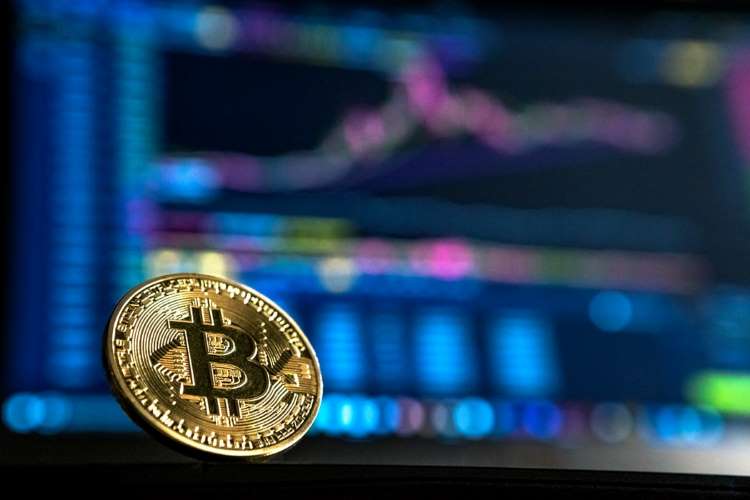
Cryptocurrencies witnessed huge volatility last week with Bitcoins crashing to $30,000 before making a slight recovery. In the process, the most traded crypto lost around half of its value, bleeding investor value across the world. It is estimated that crypto investors lost at least $830 billion in last week’s meltdown. Still, they have an aggregate value of around $1.5 trillion.
Among the Indian stakeholders of cryptocurrencies, there are strong undercurrents, deafening official-silence and unofficial-posturing, Over the last few months, the government has had its varying views and intent about cryptocurrencies. The Reserve Bank of India has been silent about cryptos. The investor community has been euphoric about the instrument and equally miffed with the Indian officialdom’s behaviour. All this, when the topic of crypto was purportedly solved last year with the Supreme Court of India lifting the RBI’s crypto ban of 2018.
READ I Covid-19 crisis: Ease GST norms for imports of relief material, healthcare products
Cryptocurrencies: Concerns and common sense
Is it the common man who buys Bitcoin? Or HNIs, or someone who understands technology and / or has surplus funds to invest? Should we blame crypto investing for lack of other attractive-investment instruments currently? Moral placarders even compare crypto to gambling. Statistically, capital markets volatility has wiped out huge amounts of retail investors’ wealth in the past and could continue to do so in the future in a free-market scenario.
Another narrative fears that cryptos could be used for money laundering and terror financing. A rouge actor would have to be naive to try terror financing on an immutable ledger that can be seen and must be authenticated by all nodes on a blockchain. According to a report by Chainalysis, a company the specialises in cryptocurrency investigations for governments, exchanges and financial institutions, the ‘criminal share’ of all cryptocurrency activity globally fell to just 0.34% ($10.0 billion value) in 2020. The report also mentions that most cryptocurrency-related crimes are ransom-ware, darknet market deals, etc.
In India, traditional physical assets like real estate and gold still account for most money laundering operations and financing rough elements. Real estate is still not covered under the Money Laundering Act while purchasing gold does not even require KYC.
READ I Women and employment: How economic liberalisation failed to address inequalities
Confusion galore over crypto investments
Of late, banks have not been allowing crypto transactions on their gateways. Media reports speculate that the RBI nudged the banks to cold-shoulder cryptos.
The RBI has been reportedly working on building a central bank digital currency (CBDC), using many of the properties of cryptocurrencies including the blockchain technology. A good start is that the ministry of corporate affairs (MCA) had recently made it mandatory for companies to disclose crypto trading/investments during the financial year. Whenever clarity comes through, if cryptos were to-be treated under law as securities, then the regulatory control will be in SEBI’s court.
If it’s treated as currency, then it would fall in RBI domain. Technically, cryptocurrencies are unviable as a currency as of now due to the massive changes in corrections and the time it takes for a transaction to get authenticated by the various nodes on the blockchain.
READ I Labour reforms: How labour codes gave social dialogue, consultations a miss
Clarity needed on cryptocurrencies
The recent confusion around cryptocurrencies, leave a number of questions unanswered for stakeholders.
Are the current predatory actions of the banks against the cryptocurrencies to be seen as appeasing their regulator? Is it a dereliction of commercial agreement between banks and crypto players? Can the affected crypto players seek redressal from the consumer grievance committees of the bank boards chaired by independent directors?
Can the crypto players seek SEBI’s help, as most of these banks are listed-entities and the consumers as stakeholders have the right to recourse for detailed disclosures with the securities regulator? Can they seek help and advice of the government under right to “ease of doing business”?
The ostrich act by regulators and banks that ignores the development of digital currencies globally will be at their own peril. Economically, the price of arbitrariness of policy or regulatory indecision is too high. A healthier policy discussion on this topic can start with sharing the Cryptocurrency and Regulation of Official Digital Currency Bill, 2021 in public domain.
(Srinath Sridharan is an independent markets commentator based in Mumbai. Views are personal.)
Srinath Sridharan is a strategic counsel with 25 years experience with leading corporates across diverse sectors including automobiles, e-commerce, advertising and financial services. He understands and ideates on intersection of finance, digital, contextual-finance, consumer, mobility, Urban transformation, and ESG. Actively engaged across growth policy conversations and public policy issues.

